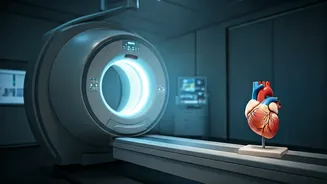The Hidden Connection
Weight loss drugs, while designed to improve health by addressing obesity, have come under scrutiny for their potential impact on cancer detection. The
concern is that some of these medications might influence the accuracy of diagnostic tests. By interfering with biological processes or mimicking symptoms, these drugs could lead to misdiagnoses, potentially delaying appropriate treatment. Understanding this hidden connection is essential for both patients and healthcare professionals, as timely and accurate diagnoses are paramount in cancer treatment. Research is ongoing to determine the specific mechanisms by which these drugs might interfere with cancer detection, emphasizing the need for comprehensive patient evaluations and informed decision-making. The complexity arises from the diverse range of weight loss drugs and the various cancer types; therefore, continuous investigation is crucial to safeguard patient well-being.
Drug Interactions Explained
The interaction between weight loss drugs and cancer diagnostics is multifaceted. Certain drugs might alter the results of imaging tests like PET scans or MRIs, potentially masking the presence of cancerous tumors or leading to false positives. Other medications could affect blood tests, disrupting the detection of cancer biomarkers. Moreover, some weight loss drugs might trigger symptoms that mimic those of cancer, further confusing the diagnostic process. For instance, drugs affecting metabolism may influence the appearance of tumors on scans. These interactions necessitate careful consideration by medical professionals when interpreting diagnostic results in patients using weight loss drugs. This also highlights the importance of thorough patient history, including all medications, during cancer screening. This helps doctors to differentiate between drug-induced changes and actual cancer. A well-informed approach, combining a detailed medical history with advanced diagnostic techniques, is crucial in ensuring accurate cancer detection and effective treatment planning.
Misdiagnosis Consequences
The potential for misdiagnosis due to weight loss drugs carries significant consequences. A delay in detecting cancer can allow the disease to progress, reducing the chances of successful treatment. It also leads to the administration of inappropriate therapies, which can harm the patient and add unnecessary psychological stress. Conversely, false positives can lead to patients undergoing unnecessary treatments, such as chemotherapy or surgery, which causes considerable physical and emotional burden. The potential risks underscore the necessity for clinicians to remain vigilant. They should always carefully evaluate the use of weight loss drugs in patients who are undergoing cancer screening. This situation calls for personalized treatment plans, considering the patient's medication regimen and individual health profile. Regular follow-ups, along with clear communication between patients and healthcare providers, are vital in mitigating the risks associated with misdiagnosis. Open dialogue ensures that any concerns or unexpected symptoms are addressed promptly and effectively.
Patient Awareness Matters
Increasing awareness among patients about the potential risks associated with weight loss drugs and cancer is critical. Patients should proactively inform their doctors about all medications they're taking, including weight loss drugs, during cancer screenings and follow-up appointments. They should also discuss any unusual symptoms or changes in their health with their healthcare providers. It is important to ask about potential interactions between weight loss medications and cancer diagnostic procedures. Patient education empowers individuals to actively participate in their healthcare journey, making informed decisions that positively affect their well-being. Furthermore, patients should insist on comprehensive diagnostic evaluations, which include thorough physical examinations and advanced imaging techniques. Regular monitoring and open communication with medical professionals are vital. This approach ensures early detection and timely intervention in case of any health complications. Ultimately, an informed and proactive patient is better equipped to navigate the complexities of their healthcare.
Future Research Directions
Future research needs to focus on specific weight loss drugs and their impact on different types of cancer diagnosis. Studies should investigate the mechanisms by which these drugs interfere with detection and the impact on patient outcomes. Researchers must also develop strategies to mitigate the risks. This might include developing improved diagnostic protocols or formulating guidelines for healthcare professionals. Furthermore, personalized approaches that consider the individual patient's medical history, genetic profile, and medication regimen should be explored. Collaborations between oncologists, endocrinologists, and pharmacologists are essential for a comprehensive understanding of the issue. Continued research into the complex interactions between weight loss drugs and cancer detection will improve patient care. Developing better diagnostic tools and effective therapeutic interventions will contribute to better health outcomes and reduce the potential for misdiagnosis. Focusing on preventive measures and proactive health strategies should become a priority for future studies.












